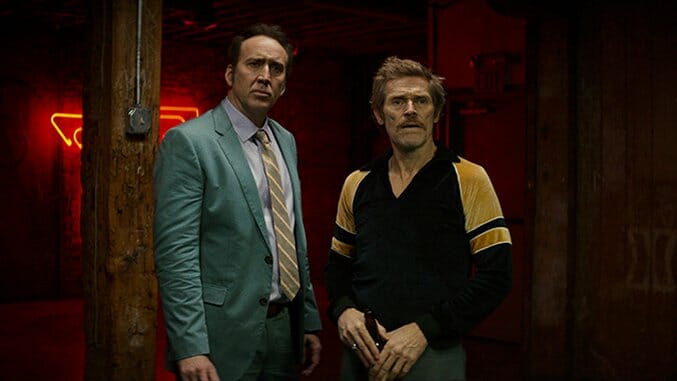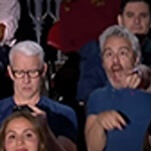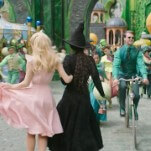Dog Eat Dog

Paul Schrader does not feel he has been adequately appreciated lately—or, at least that’s how it seems when you hear him talk about the ways in which studios have pushed him aside or how critics have assaulted his work. Whether you agree with him or not, it hardly matters what you think, which is Schrader’s problem: Any lack of respect he’s feeling or less-than-stellar response he’s received, he believes it has nothing to do with the quality of the film’s he’s making, and everything to do with his struggle to, all these years later, make the movies he wants to make in a system that’s rigged against doing just that. If this were a matter of a complicated artist refusing to be labeled as out-of-touch, Schrader’s oeuvre more than proves he’s earned the benefit of the doubt. Except for Dog Eat Dog, his 19th feature as director: In 2016, at age 70, there is no longer any reason to believe Paul Schrader isn’t out of touch.
Dog Eat Dog begins with Willem Dafoe on a couch, obviously zonked out of his gourd, half-watching TV blaring news and broadcast detritus about gun control and the general pall of violence that hangs over America in the oversaturated here and now we currently suffer. Schrader shoots this opening as garishly as Dafoe’s moustache deserves, which means it looks like what I’d imagine Jonas Åkerlund’s Spun would’ve looked like to a terrified 10-year-old in 2003. Dafoe’s strung-out vessel for that unnerving upper-lip hair-worm then goes to the bathroom to do drugs (cue vague Darren Aronofsky rip), afterwards greeting a shrill woman and her shrill daughter, begging the woman to let him stay the night (as the house is not apparently his), to which she agrees until she sees that he’s been using her computer to watch porn, angrily ordering him to get out. He won’t leave—he stabs her to death, and then he goes upstairs to shoot the daughter in the head. Smash cut: DOG EAT DOG. This movie is excrement.
Dafoe is Mad Dog, an ex-con whose besties are a Q-ball roughneck type with a super-confused heart of pyrite, Diesel (Christopher Matthew Cook), and ersatz scumbag leader in humanity’s ugliest suit, Troy (Nicolas Cage), who also serves as our narrator. Troy tells us they got to know each other in jail, and then gives us an idea of the pitch-black shenanigans to come, simultaneously going to meet with Grecco the Greek (yes, that’s this character’s name, and yep, he’s played by Paul Schrader) to pick up some last-minute jobs and make some fast cash, since Troy just got out of jail and he needs to get back on his feet. The three friends get into icky hijinks, dependably applying little but belligerence to each situation, and eventually everything catches up to them in stupendously shameless fashion, bookended by what’s probably a hallucinatory grace note but plays out like an extra five muddled minutes in an already torturously paced film. It’s not slow, it’s just so hyperactive and aimless it quickly becomes a soul-numbing slog.
-

-

-

-

-

-

-

-

-

-

-

-

-

-

-

-

-

-

-

-

-

-

-

-

-

-

-

-

-

-

-

-

-

-

-

-

-

-

-

-








































